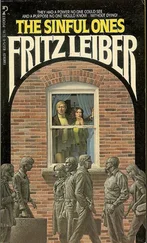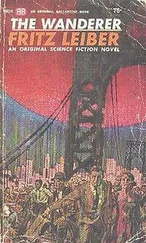Fritz Leiber - The Best of Fritz Leiber
Здесь есть возможность читать онлайн «Fritz Leiber - The Best of Fritz Leiber» весь текст электронной книги совершенно бесплатно (целиком полную версию без сокращений). В некоторых случаях можно слушать аудио, скачать через торрент в формате fb2 и присутствует краткое содержание. Жанр: Фантастика и фэнтези, на английском языке. Описание произведения, (предисловие) а так же отзывы посетителей доступны на портале библиотеки ЛибКат.
- Название:The Best of Fritz Leiber
- Автор:
- Жанр:
- Год:неизвестен
- ISBN:нет данных
- Рейтинг книги:3 / 5. Голосов: 1
-
Избранное:Добавить в избранное
- Отзывы:
-
Ваша оценка:
- 60
- 1
- 2
- 3
- 4
- 5
The Best of Fritz Leiber: краткое содержание, описание и аннотация
Предлагаем к чтению аннотацию, описание, краткое содержание или предисловие (зависит от того, что написал сам автор книги «The Best of Fritz Leiber»). Если вы не нашли необходимую информацию о книге — напишите в комментариях, мы постараемся отыскать её.
The Best of Fritz Leiber — читать онлайн бесплатно полную книгу (весь текст) целиком
Ниже представлен текст книги, разбитый по страницам. Система сохранения места последней прочитанной страницы, позволяет с удобством читать онлайн бесплатно книгу «The Best of Fritz Leiber», без необходимости каждый раз заново искать на чём Вы остановились. Поставьте закладку, и сможете в любой момент перейти на страницу, на которой закончили чтение.
Интервал:
Закладка:
Emily’s bedroom was not the austere silver cell or self-shrine I had sometimes imagined, especially when she was scoring a point against me, but an almost cluttered museum-workshop of present interests and personal memorabilia. She’d even kept her kindergarten study-machine, her first CO2 pistol, and a hockey stick, along with mementos from her college days and her Peace Corps tours.
But those I noticed much later. Now pale golden light from a rising full moon, coming through the great view window, brimmed the room. I had just enough of my wits left to recall that the real moon was new, so that this must be a tape of some past night. I never even thought of the Communist and American forts up there, with their bombs earmarked for Earth. Then, standing straight and tall and looking me full in the eyes, like some Amazonian athlete, or Phryne before her judges, Emily let her kimono glide down from her shoulders.
In the act of love she was energetic, but tender. No, the word is courteous, I think. I very happily shed a week of tensions and uncertainties and self-inflicted humiliations.
“You still think I’m a puritan, don’t you?” she softly asked me afterward, smiling at me sideways with the smeared remains of her crimson mouth, her gray eyes enigmatic blurs of shadow.
“Yes, I do,” I told her forthrightly. “The puritan playing the hetaera, but still the puritan.”
She answered lazily, “I think you like to play the Hun raping the vestal virgin.”
That made me talk dirty to her. She listened attentively—almost famishedly, I thought, for a bit—but her final comment was “You do that very well, dear,” just before using her lips to stop mine, which would otherwise have sulphurously cursed her insufferable poise.
Next morning I started to write a poem about her but got lost in analysis and speculation. Tried too soon, I thought.
Although they were as gracious and friendly as ever, I got the impression that the other Grissims had quickly become aware of the change in Emily’s and my relationship. Perhaps it was that they showed a slight extra fondness toward me. I don’t know how they guessed—Emily was as cool as always in front of them, while I kept trying to play myself, as before. Perhaps it was that the argument about puritanism was never resumed.
Two evenings afterward the talk came around to Jack’s and Emily’s elder brother Jeff, who had fallen during the Great Retreat from Jammu and Kashmir to Baluchistan. It was mentioned that during his last furlough they had been putting up an exchange instructor from Yugoslavia, a highly talented young sculptress. I gathered that she and Jeff had been quite close.
“I’m glad Jeff knew her love,” Emily’s mother said calmly, a tear behind her voice, though not on her cheeks. “I’m very glad he had that.” The professor unobtrusively put his hand on hers.
I fancied that this remark was directed at me and was her way of giving her blessing to Emily’s and my affair. I was touched and at the same time irritated—and also irritated at myself for feeling irritated. Her remark had brought back the shadows, which darkened further when Jack said a touch grimly and for once with a soldier’s callousness, though grinning at me to remove any possible offense, “Remember not to board any more lady artists or professors, mother, at least when I’m on leave. Bad luck.”
By now I was distinctly bothered by my poetry block. The last lectures were going swimmingly and I ought to have been feeling creative, but I wasn’t. Or rather, I was feeling creative but I couldn’t create. I had also begun to notice the way I was fitting myself to the Grissim family—muting myself, despite all the easiness among us. I couldn’t help wondering if there weren’t a connection between the two things. I had received the instructorship offer, but was delaying my final answer.
After we made love together that night—under a sinking crescent moon, the real night this time, repeated from above—I told Emily about my first trouble only. She pressed my hand. “Never stop writing poetry, dear,” she said. “America needs poetry. This family—”
That broken sentence was as close as we ever got to talking about marriage. Emily immediately recovered herself with an uncharacteristically ribald “Cheer up. I don’t even charge a poem for admission.”
Instead of responding to that cue, I worried my subject. “I should be able to write poetry here,” I said. “America is beautiful, the great golden apple of the Hesperides, hanging in the west like the setting sun. But there’s a worm in the core of that apple, a great scaly black dragon.”
When Emily didn’t ask a question, I went on, “I remember an advertisement. ‘Join all your little debts into one big debt.’ Of course, they didn’t put it so baldly, they made it sound wonderful. But you Americans are like that. You’ve collected all your angers into one big anger. You’ve removed your angers from things at home—where you seem to have solved your problems very well, I must admit— and directed those angers at the Communist League. Or instead of angers, I could say fears. Same thing.”
Emily still didn’t comment, so I continued, “Take the basic neurotic. He sets up a program of perfection for himself—a thousand obligations, a thousand ambitions. As long as he works his program, fulfilling those obligations and ambitions, he does very well. In fact, he’s apt to seem like a genius of achievement to those around him, as America does to me. But there’s one big problem he always keeps out of his program and buries deep in his unconscious—the question of who he really is and what he really wants —and in the end it always throws him.”
Then at last Emily said, speaking softly at first, “There’s something I should tell you, dear. Although I talk a lot of it from the top of my mind, deep down I loathe discussing politics and international relations. As my old colonel used to tell me, ‘It doesn’t matter much which side you fight on, Emily, so long as you have the courage to stand up and be counted. You pledge your life, your fortune, and your sacred honor, and you live up to that pledge!’ And now, dear, I want to sleep.”
Crouching on the edge of her bed before returning to my room, and listening to her breathing regularize itself, I thought, “Yes, you’re looking for nirvana too. Like Jack.” But I didn’t wake her to say it, or any of the other things that were boiling up in my brain.
Yet the things I left unsaid must have stayed and worked in my mind, for at our next fireside talk—four pleasant Americans, one Englishman with only one more lecture to go—I found myself launched into a rather long account of the academic Russian family I stayed with while delivering the Pushkin Lectures in Leningrad, where the smog and the minorities problems have been licked too. I stressed the Rosanovs’ gentility, their friendliness, the tolerance and sophistication which had replaced the old rigid insistence on kulturny behavior, and also the faint melancholy underlying and somehow vitiating all they said. In short, I did everything I knew to underline their similarity to the Grissims. I ended by saying “Professor Grissim, the first night we talked, you said America’s achievement had been due almost entirely to the sweep of science, technology, and computerized civilization. The people of the Communist League believe that too—hi fact, they made their declaration of faith earlier than America.”
“It’s very strange,” he mused, nodding. “So like, yet so unlike. Almost as if the chemical atoms of the East were subtly different from those of the West. The very electrons—”
“Professor, you don’t actually think—”
“Of course not. A metaphor only.”
Читать дальшеИнтервал:
Закладка:
Похожие книги на «The Best of Fritz Leiber»
Представляем Вашему вниманию похожие книги на «The Best of Fritz Leiber» списком для выбора. Мы отобрали схожую по названию и смыслу литературу в надежде предоставить читателям больше вариантов отыскать новые, интересные, ещё непрочитанные произведения.
Обсуждение, отзывы о книге «The Best of Fritz Leiber» и просто собственные мнения читателей. Оставьте ваши комментарии, напишите, что Вы думаете о произведении, его смысле или главных героях. Укажите что конкретно понравилось, а что нет, и почему Вы так считаете.









